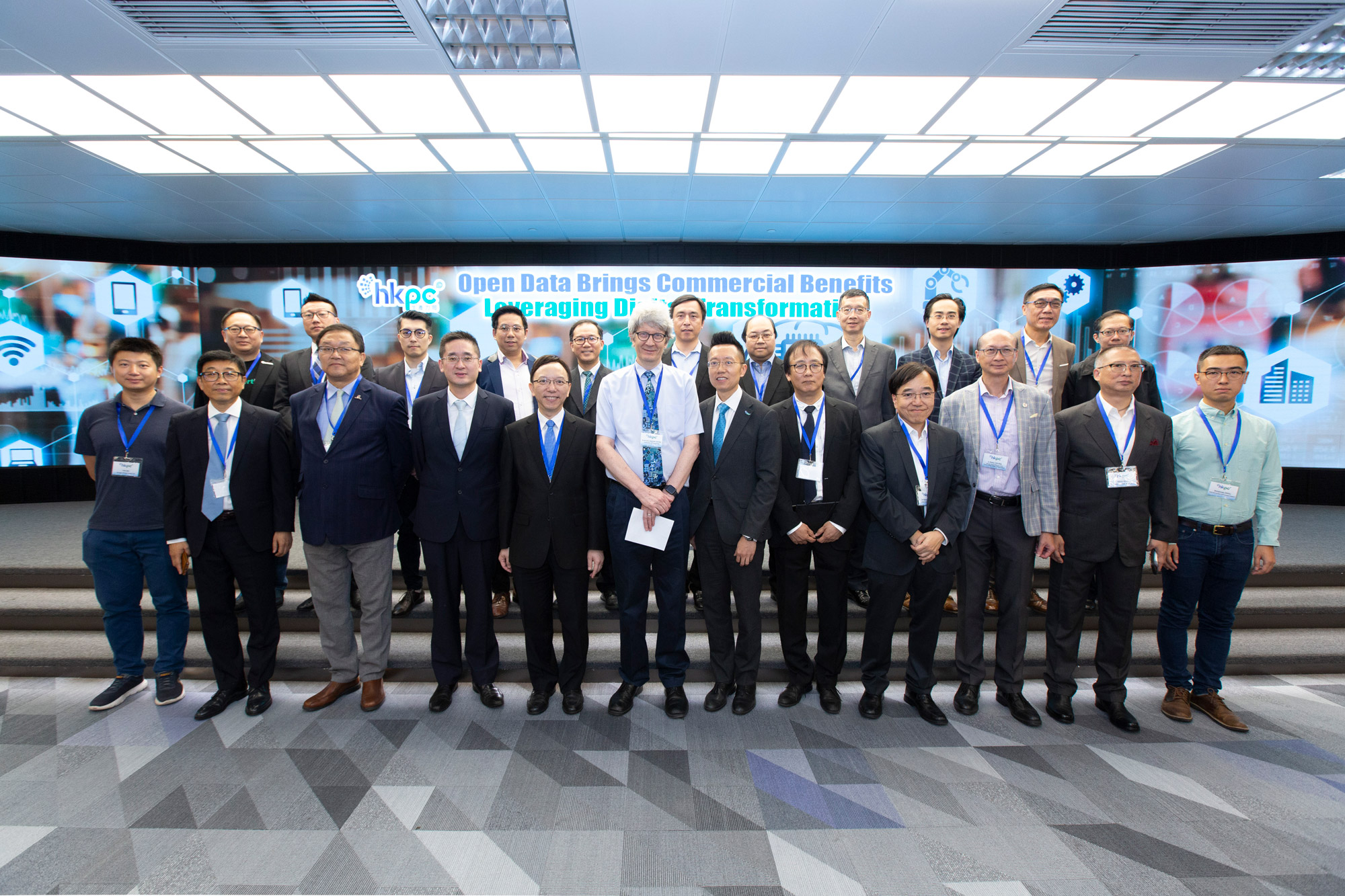Keynote Speech by Mr. Victor Lam, JP, Government Chief Information Officer, at the “2nd Open Data Conference” (with photos)
Professor Bacon-Shone, Distinguished Speakers, Guests, Ladies and Gentlemen,
Good afternoon! It is my great honour to join you all at the Second Open Data Conference. First of all, I would like to thank the Social Sciences Research Centre of the University of Hong Kong, the Hong Kong Productivity Council, the Hong Kong Science and Technology Park and the Cyberport for jointly organising this conference, which serves as an excellent platform to discuss and share the latest trends of open data development.
Data-driven Innovation
Innovation is about the process of turning an idea into goods or services that create values. In the past few decades, IT has been a key driver for innovations. The inventions of the Internet, mobile communications network, smartphones have fostered the development of numerous innovations, enabling people do things faster and easier. The innovation landscape has been constantly evolving. The confluence of several trends, like the increasing use of the Internet for socio-economic activities and the drop in the cost for data collection, storage and processing, has led to the generation of a huge amount of data. Such data have become the core asset of the economy, fostering the development of new businesses and products. Data-driven innovation is now the key driver for digital transformation and business growth. Organisations and innovators alike are in dire need for data, thus paving the way for an international trend of open data.
The Government’s Efforts in Promoting Open Data
The Government has been advocating open data for many years. Since 2011, we have set up the Public Sector Information (“PSI”) Portal (data.gov.hk) to serve as a one-stop portal on open data for the public. Through a few years of effort, we have built up a collection of around 3 100 datasets in the portal by the end of 2017. To further drive the development of open data, the Chief Executive announced in her first Policy Address in 2017 that the Government would step up its efforts to develop innovation and technology in eight major areas, one of which was open data. In October 2018, the Government announced the open data policy and implementation measures to promote smart city development.
Open Data Policy and Implementation Measures
Under the open data policy, government bureaux and departments should endeavour to release their data for free public use on the PSI Portal to facilitate innovation and research, bring benefits to the public and promote economic development, unless there are justifiable reasons such as involving personal privacy. To take forward the policy in a holistic manner, a number of implementation measures have also been formulated.
Firstly, all government bureaux and departments are required to draw up and publish their annual open data plans to set out the datasets which have been opened up and the datasets to be released in the following three years (with the year immediate following with greater details). Secondly, to align with international practices and ensure convenient access by the public, the datasets opened up should meet a number of usability requirements, including releasing datasets in machine-readable formats, providing timely updated data, documenting open datasets with standardised metadata schemes, removing unnecessary restrictions on the use of open data (such as not for commercial use or for educational purpose only). Thirdly, for data collected and possessed by public bodies or commercial organisations which are public utilities by nature or with high public interest, relevant government bureaux and departments are also required to explore options in collaboration with the concerned organisations to open up their data to the public.
Latest Progress and Breakthrough
Since the promulgation of the open data policy, the development has been encouraging. First of all, over 80 government bureaux and departments have timely published their first annual open data plans in December 2018, listing out the new datasets to be released. According to the published plans, some 700 new datasets will be opened up this year. That means the increase in 2019 will be 20 to 30% over the total number of datasets opened up during the whole period from 2011 to 2018. To date, some 570 new datasets have already been opened up in accordance with the planned schedule. The PSI Portal is now providing around 3 900 datasets from nearly 100 data providers including government departments as well as other public and private organisations. We expect that the total number of datasets will surpass 4 000 by the end of this year.
Another encouraging development is the increasing support for open data by public and private organisations. Real-time data from public transport operators has always been in high demand. In a bid to support the open data policy by the Transport Department, the New World First Bus Limited, Citybus Limited, New Lantao Bus Company (1973) Limited and MTR Corporation Limited have opened up their estimated time of arrival (ETA) data in real-time on the PSI Portal since August. Shortly after the opening up of data, we are glad to see that these data have already been incorporated into some mobile apps to provide timely and useful information to facilitate citizens travelling around the city. These datasets are indeed very popular and the average number of daily download is almost 1 million.
In addition to public transportation data, many other new datasets that may be useful to the community at large are opened up this year such as those on “Tropical Cyclone Track Information” by the Hong Kong Observatory, “Vacancy Situation of Public Sector Primary and Secondary Schools” by the Education Bureau, “Accident and Emergency (A&E) Waiting Time” by the Hospital Authority.
These open data will serve as useful ingredients for software developers in coming up with innovations. Our Office, for instance, has also started a project to develop a City Dashboard by making use of open data. By presenting livelihood-related open data in a user-friendly fashion, the City Dashboard can let the general public gain a better overall picture of Hong Kong on road traffic, weather and environmental conditions, public facilities, etc. The City Dashboard is now under development, and our target is to launch it via the PSI Portal by the end of this year.
Way Forward
The open data policy has laid a solid foundation for open data development. With this new policy, we believe that not only government bureaux and departments are more readily opening up their data for free public use, public and private organisations are also increasingly making contributions by sharing their own datasets which are of high public interest.
To sustain the momentum, government bureaux and departments are now preparing their second annual open data plans, which will be published by this December. Apart from making reference to the comments and feedback received from the public in drawing up the plans, government bureaux and departments have been advised to consider opening up more real-time data and geospatial data, so as to facilitate the development of more applications that can bring benefits to the general public and facilitate smart city development. Government bureaux and departments should also consider opening up datasets with finer data granularity to better support detailed analysis and research.
Open data can bring about enormous potential for innovation and smart city development. We will continue to build up partnership with internal and external stakeholders for the continuous development of open data. With the concerted efforts of the Government, private sector and the academia, I am confident that the open data ecosystem in Hong Kong will continue to blossom. Let’s work hand in hand along our open data journey. May I wish today’s event a great success. Thank you.
- ENDS -






